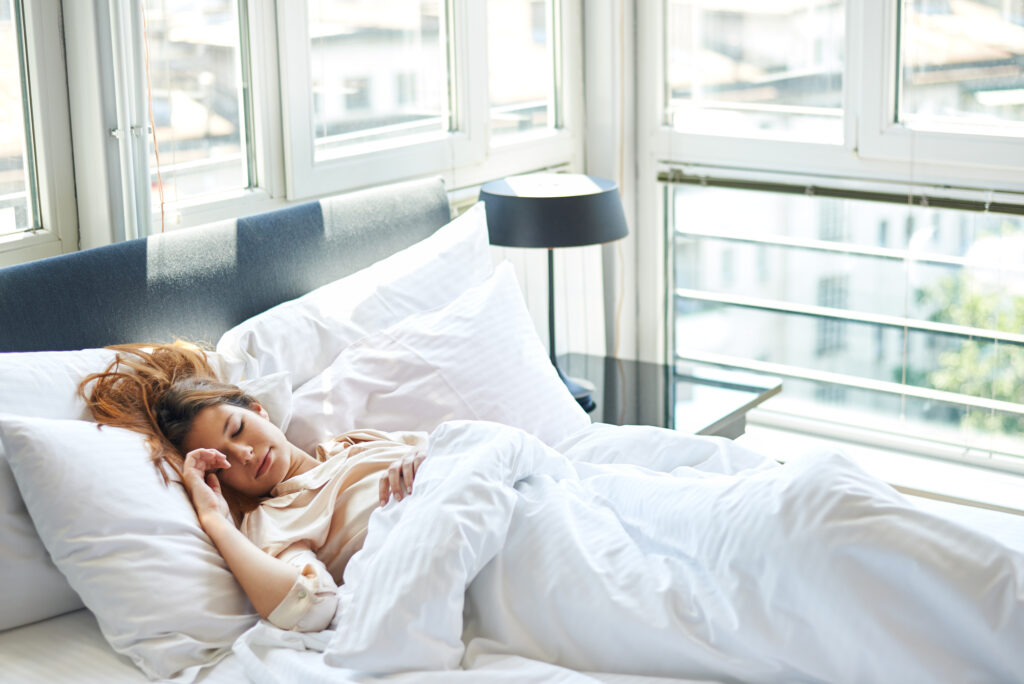The human body needs sleep. Sleeplessness studies have shown that when humans go without it for extended periods, they can’t concentrate, and their judgment suffers. You can only make intelligent decisions and conduct yourself appropriately if you get enough sleep every night.
That means changing your habits if you’re not sleeping enough and you feel exhausted all the time. There are a few things you might attempt that should put you in a better position to get the sleep you need, so let’s talk about those right now.
Set a Rigid Bedtime
Each person has a time of the day when they feel the most active and alert. Everyone’s physiology is different, though. Because of this, you might have an individual who’s most able to work and be productive at six every morning, while someone else may not be fully awake and capable of their best work till nine.
While some people take graveyard shifts because they are night owls, most like to sleep at night and work during the days. If you can set a rigid time for you to go to bed and another for you to wake up, that can help train your body to shut down and wake up predictably.
If you can set ten as your bedtime every night, for instance, and get up at six every morning, that should force your body into a more predictable sleep routine. That way, you can stay off the roads during the night as well.
Drowsy driving causes crashes between midnight and six in many instances, and you want to stay safe. Besides, if you’re up at the same time every morning, it’s not as likely you’ll be late for work, and your boss will appreciate your punctuality.
Cut Down on the Caffeine
Many Americans report that they drink several cups of coffee during the day or multiple caffeinated sodas. That jolt will wake you up, but it also makes it harder to fall asleep at night.
If it’s possible to completely eliminate all caffeine from your diet, that’s best. If you feel like you need a little bit to wake you up, though, try to lessen the amount you drink during the day.
If you can have a single caffeinated drink in the morning and perhaps one more in the afternoon, that should be sufficient. You should also not drink any caffeine after mid-afternoon. If you have another caffeinated beverage at seven in the evening, don’t let it surprise you if you can’t sleep that night.
Nap if Your Body Needs It
It is not a bad idea to take a power nap in the late morning or afternoon if you can manage it. Whether you can or not depends mainly on what kind of job you have.
If you work from home, for instance, you might sack out for half an hour right after lunch. You can get back up and feel refreshed, ready to work for the rest of the day.
Some job sites even provide a breakroom with a couple of couches these days. Company heads recognize that naps can help their workers power through the rest of the day, so they don’t discourage employees from napping during lunch.
Use a Sleep App
You might grapple with insomnia at night. Your body wants to shut down, but your mind continues to think about what happened during the day or what will happen tomorrow. You might even think about events from earlier in your life or your dreams and hopes for the future.
If you download a sleep app to your smartphone and use it, it can make some comforting noises that should help you rest. Many individuals cannot sleep in total silence.
These apps often don’t cost anything, and paid versions exist as well. You can fall asleep listening to a rainstorm, frogs in a swamp, or anything else that makes you tired.
Make It as Dark as Possible
Some people can’t sleep if it is too light in a room. Maybe there is a lamppost right outside your bedroom window, and that light shines in through the blinds all night. That’s not conducive to a sound night of sleep.
You can buy some blackout curtains that will effectively block out the light. The heavier and thicker your curtains, the more useful they are in creating the pitch-blackness you might need to fall asleep faster.
Follow this advice, and see if your sleep cycle does not improve.

